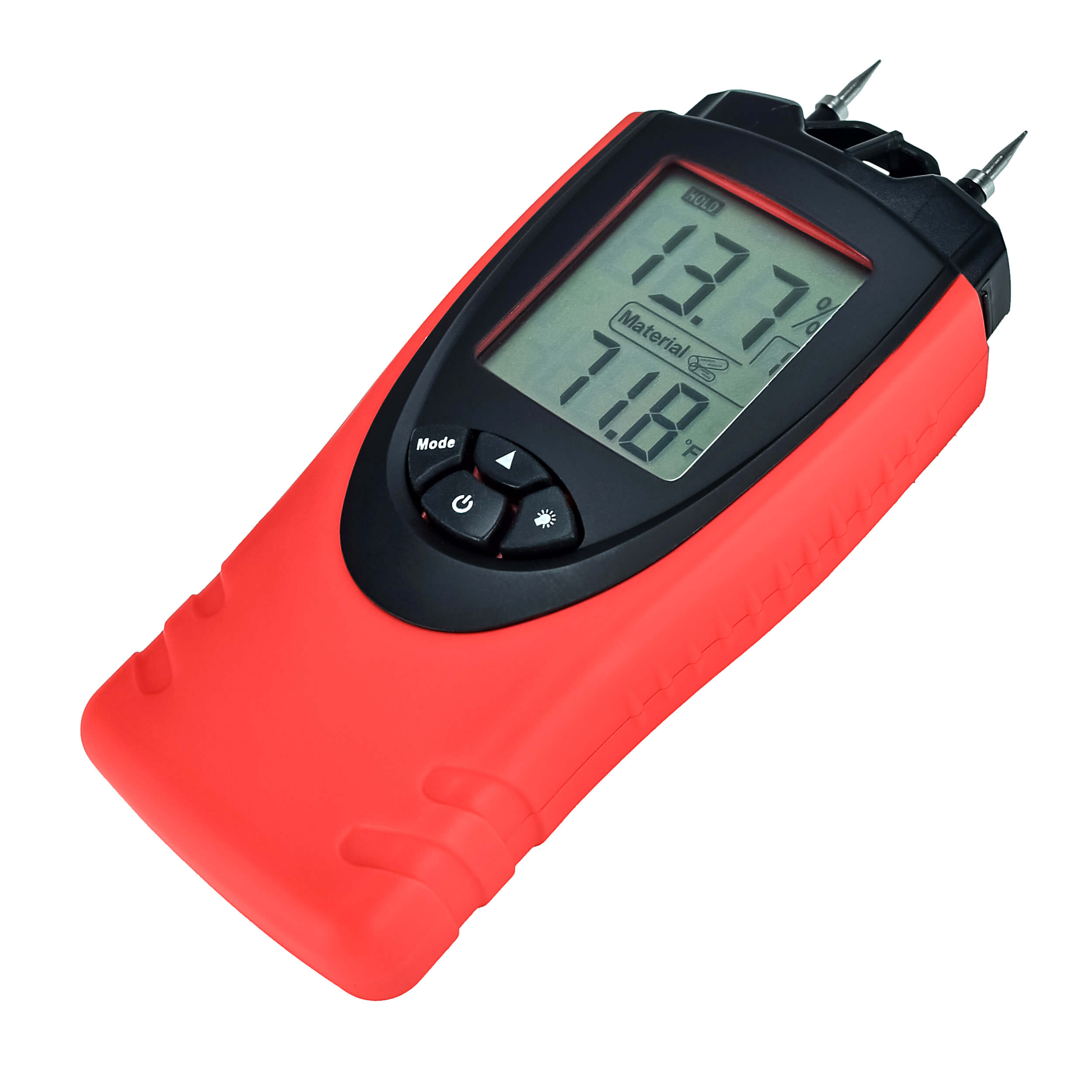Exactly How a Moisture Meter Can Boost Your Building And Construction Projects and Avoid Damage
Exactly How a Moisture Meter Can Boost Your Building And Construction Projects and Avoid Damage
Blog Article
The Ultimate Overview to Wetness Meters: A Comprehensive Summary and Just How They Can Save You Cash
Dampness meters serve as indispensable tools in detecting and keeping an eye on moisture content in products, assisting in avoiding expensive problems and guaranteeing the high quality of items. Understanding the nuances of various kinds of dampness meters, their applications, and the prospective cost-saving advantages they offer can be a game-changer for professionals and companies alike.
Sorts Of Dampness Meters
One common type is the pin-type moisture meter, which measures the electric resistance in between 2 pins placed into a material. Pinless moisture meters, on the other hand, usage electro-magnetic sensing unit plates to scan a larger area without causing damages to the product's surface.

In addition, there are likewise specialty dampness meters created for particular products like grain, hay, or soil. These meters give precise moisture analyses tailored to the one-of-a-kind buildings of the product being evaluated. Infrared moisture meters determine the thermal residential or commercial properties of a product to identify its moisture material non-invasively, making them useful for applications where pin or pinless meters might not appropriate. Recognizing the different kinds of moisture meters offered can help markets choose the most ideal tool for their details moisture dimension demands.

Advantages of Using Dampness Meters
Moisture meters offer invaluable advantages in accurately monitoring and evaluating moisture levels in varied products and environments (Moisture Meter). One of the main advantages of making use of moisture meters is the prevention of possible damages caused by excess moisture. By identifying and dealing with high wetness degrees early on, wetness meters assist to stop mold growth, rot, and architectural damages in structures, saving both money and time on repair services. Additionally, dampness meters help in guaranteeing the top quality of products during building or production processes. By accurately determining dampness content, these devices assist keep the honesty of timber, drywall, concrete, and various other products, lowering the threat of defects or failings.
Additionally, utilizing moisture meters can lead to raised energy effectiveness. In farming setups, wetness meters play a crucial function in optimizing crop returns by enabling farmers to keep an eye on dirt wetness degrees and make educated irrigation choices.
Just How to Choose the Right Wetness Meter
When choosing a moisture meter, it's important to guarantee that the meter is appropriate for the particular material you will be screening. Various materials have varying electric properties that can influence dampness analyses, so selecting a meter created for your product is critical for precise outcomes. By meticulously examining these variables, you can select a moisture meter that meets your requirements and offers accurate dampness measurements for your tasks.
Appropriate Strategies for Wetness Meter Usage

Expense Cost Savings With Wetness Meter Applications
How can the critical use of wetness meters lead to considerable cost financial savings across numerous markets? In the agriculture market, moisture meters help in identifying the optimum time for gathering plants, stopping over-drying or excess wetness that can impact the last product's high quality.
Similarly, in building, moisture meters assist prevent expensive problems by finding moisture degrees in building materials, such as timber or concrete, which next page can result in architectural issues if not addressed immediately. By identifying issue locations early, contractors can take restorative actions to avoid considerable repair work or substitutes, inevitably saving money and time.
Furthermore, in the food processing sector, moisture meters are necessary for monitoring product high quality and ensuring conformity with safety and security regulations. By precisely determining dampness material in food items, makers can avoid perishing, maintain freshness, and minimize waste, causing significant cost savings. Generally, the strategic application of moisture meters is a beneficial investment that can result in considerable expense reductions and improved effectiveness throughout numerous industries.
Conclusion
In verdict, wetness meters are valuable devices for discovering and measuring moisture degrees in numerous products. By using the right dampness meter and following correct methods, customers can successfully prevent expensive damages triggered by excess moisture.
Wetness meters serve as indispensable read more tools in detecting and checking moisture content in products, aiding in stopping pricey damages and making certain the quality of items. Infrared dampness meters measure the thermal homes of a product to determine its wetness material non-invasively, making them useful for applications where pin or pinless meters may not be appropriate.Dampness meters provide vital benefits in accurately keeping track of and examining dampness levels in diverse materials and atmospheres. In farming setups, dampness meters play an essential function in enhancing plant returns by making it possible for farmers to monitor soil wetness levels and make notified watering choices.In verdict, moisture meters are valuable tools for discovering and determining dampness degrees in numerous products.
Report this page